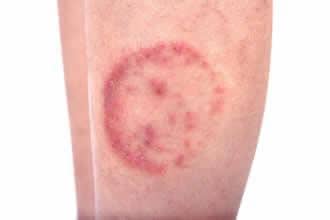
There are many reasons that you might be dealing with a skin rash; however, if you suspect that it might be ringworm you may be surprised to discover that there are other conditions that can often masquerade as ringworm but aren’t. This is why it’s important to have any rashes or skin problems thoroughly evaluated by a qualified dermatologist. After all, you want to make sure that you are getting the proper treatment you need depending on the type of condition you’re dealing with.
What does ringworm look like?
If you have ringworm, common symptoms include:
- A circular or ring-like rash that may be raised along the edges
- A rash that may be scaly, itchy, red, or burning
- Hair loss in the area where the rash has appeared
The rash may develop several red, raised rings at once, some of which may overlap. While ringworm can develop just about anywhere on the body it’s most commonly found on the arms, legs, and trunk.
If it’s not ringworm, then what else could it be?
There are a variety of ringworm imposters that could be causing you or your child’s rash. The two most common conditions are nummular eczema and granuloma annulare.
Nummular eczema causes circular patches of dry skin that can burn or become dry and scaly. This type of skin condition is often triggered by bug bites, certain medications, or a metal allergy. Granuloma annulare causes red or flesh-colored bumps to appear on the skin, but because they often appear ring-like this condition can be mistaken for ringworm. Everything from medications and viral infections to skin trauma and thyroid disorders can trigger granuloma annulare.
Other less common symptoms that may look like ringworm include,
- Contact dermatitis
- Psoriasis
- Pityriasis rosea
- Tinea versicolor (more common in children)
- Vitiligo
- Erythema migrans (common in those with Lyme disease)
- Lupus
Sometimes a skin biopsy of the lesion or rash is required for a dermatologist to be able to diagnose whether it is ringworm or not. If you are experiencing symptoms of ringworm or are concerned about a new or worsening rash, then call your dermatologist today to schedule an appointment.



